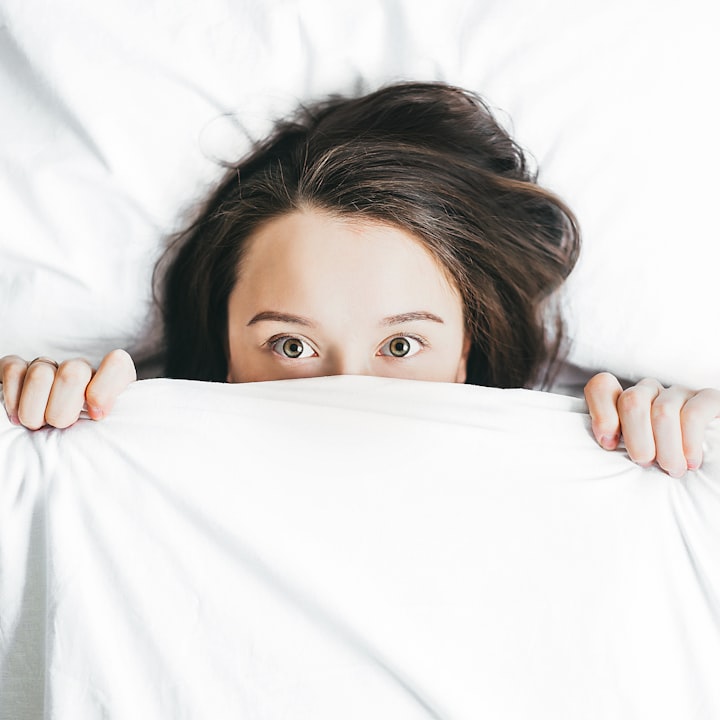
Typically, a phobia is a specific aspect of anxiety disorder, as the response caused when encountering an object. A phobia is a severe fear of a particular situation or object, that is generally unreasonable. A phobia often has a direct impact on the life of an affected person. Someone who senses panic if his house is on fire is not experiencing a phobia; this response of anxiety is perfectly reasonable since the person is encountering a situation that may result in bodily harm or death. Someone experiencing an extreme level of anxiety, perhaps related to a quickened breathing and heartbeat and a general sense of panic, when confronted by a common spider is experiencing a phobia, as this reaction is unreasonable. A severely phobic person tries to avoid his fear in each possible situation. He attempts to structure his life around avoiding as much as possible, no matter what is making him terrified.
Multiple phobias have extremely debilitating consequences on life, lifestyle, and relationships of people. A phobia also has a direct negative impact on an individual's life and ability to function. Psychologically, it is defined as,
A phobia is a type of anxiety disorder. It is a strong, irrational fear of something that poses little or no actual danger.
Intense fear of water can impact an individual's power to swim, bathe, enjoy a rainy day, and even drink a glass of water. The various phobias can affect people in different ways, but they are generally linked to a particular stimulus that triggers the panic or fear response. Phobias are identified as the most commonly occurring form of anxiety disorder.
Types of phobia:
- Nature phobias
- Situation phobias
- Animal phobias
- Medical treatment phobias
- Nature phobias
These phobias include anxiety about landscapes such as water, plants, etc. Nature phobias are fears of natural happenings and situations that occur naturally, such as thunderstorms, lightning, etc.
- Situation phobias
A situational phobia is the fear of certain situations. People with these phobias try to avoid the situation despite everything, which can majorly interfere with their lives. These include fear of flying, failure, etc.
- Animal phobias
Animal phobias are feelings of anxiety while facing specific animals; the fear of animals is generally termed zoophobia. These are the most typical kinds of specific phobias. This category includes the fear of spiders, amphibians, etc.
- Medical treatment phobias
Medical phobias involve intense fears of medical treatments, the people administering medical care, or illnesses that require medical therapy such as fear of injections, doctors, etc.
On the level of intensity, phobias are not equally divided and are classified as:
- Simple phobia
- Complex phobia
- Simple phobia
It is the type of phobia with a specific trigger: they are connected to something that can be easily identified. Simple phobias, generally, do not have much influence on the everyday lives of the recipients of the phobia. For example, you might have a fear of snakes, but for the average person, avoiding snakes in everyday life is fairly easy, so your phobia does not affect you very often as a result.
- Complex phobia
The things that most frequently trigger complex kinds of phobias are not only difficult to identify but also more difficult to avoid as well. Social anxiety and agoraphobia are known as complex phobias.
What are some possible causes of phobias?
There are different theories behind the development of a particular phobia in an individual. Freudians assume there is some psychological, most likely, sexual significance in the phobias you choose to have. While theoretical psychologists think it is from something traumatic that happened to you in your childhood or your early adulthood. As we are finding more about the hereditary qualities of our mental disorders; perhaps there, maybe, is a genetic component behind developing a particular phobia.
The majority of us believe genetics is something that puts you at greater risk of developing the disorders, but the genetic component is not the determinant of whether a person will or will not develop these disorders. Perhaps, the genes we inherit provide us more significant stability against developing the disorders. There are clear biological and chemical changes that occur in the brain during certain disorders. If you get embarrassed during public speaking, then people think that you are a low-confident person. In reality, there are changes in your brain that cause your tongue to stumble because you are a person having glossophobia.
So in a lot of human disorders, there are biochemical changes that happen to make the symptoms manifest. In 2013, a group of researchers published the results of a survey in the Journal of Anxiety Disorders, in which they accumulated relevant data from over four thousand different studies to investigate the potential aspects and causes. According to their findings, it was obvious that one significant factor, when it comes to developing phobias, is related to genetics.
The review expresses that genetic contrasts and variations among individuals were responsible for 45% of individual differences in animal-related phobias, and in phobias related to blood and injuries, genetics accounted for 41% of the differences. However, non-genetic effects also accounted for the remaining differences in fears and phobias; in other words, the majority of phobias were found to be the outcome of individual experiences that prompted the phobia to take shape. Such as being bitten by a dog when you were a kid would be a sensible clarification for why you have a phobia of dogs. It means that, while frightening or traumatic cases can induce phobias, if you have a genetic tendency toward phobias, the chance of developing phobias from such events is amplified to begin.
Symptoms of a phobia:
The most typical and disabling sign of a phobia is a panic attack. Traits of a panic attack include:
- racing heart
- upset stomach
- chest tightness or pain
- shortness of breath
- a choking sensation
- trembling or shaking
- nausea
- rapid speech
- inability to speak
- dry mouth
- elevated blood pressure
- dizziness or lightheadedness
- excessive sweating
List of phobias:
Achluophobia: Fear of darkness
Acrophobia: Fear of heights
Aerophobia: Fear of flying
Algophobia: Fear of pain
Agoraphobia: Fear of open spaces or crowds
Aichmophobia: Fear of needles or pointed objects
Amaxophobia: Fear of riding in a car
Androphobia: Fear of men
Anginophobia: Fear of angina or choking
Anthophobia: Fear of flowers
Anthropophobia: Fear of people or society
Aphenphosmphobia: Fear of being touched
Arachibutyrophobia: Fear of peanut butter
Arachnophobia: Fear of spiders
Arithmophobia: Fear of numbers
Astraphobia: Fear of thunder and lightning
Ataxophobia: Fear of disorder or untidiness
Atelophobia: Fear of imperfection
Atychiphobia: Fear of failure
Automatonophobia: Fear of human-like figures
Autophobia: Fear of being alone
Bacteriophobia: Fear of bacteria
Barophobia: Fear of gravity
Bathmophobia: Fear of stairs or steep slopes
Batrachophobia: Fear of amphibians
Belonephobia: Fear of pins and needles
Bibliophobia: Fear of books
Botanophobia: Fear of plants
Cacophobia: Fear of ugliness
Catagelophobia: Fear of being ridiculed
Catoptrophobia: Fear of mirrors
Chionophobia: Fear of snow
Chromophobia: Fear of colours
Chronomentrophobia: Fear of clocks
Chronophobia: Fear of time
Claustrophobia: Fear of confined spaces
Coulrophobia: Fear of clowns
Cyberphobia: Fear of computers
Cynophobia: Fear of dogs
Dendrophobia: Fear of trees
Dentophobia: Fear of dentists
Domatophobia: Fear of houses
Dystychiphobia: Fear of accidents
Ecophobia: Fear of the home
Elurophobia: Fear of cats
Entomophobia: Fear of insects
Ephebiphobia: Fear of teenagers
Equinophobia: Fear of horses
Gamophobia: Fear of marriage
Genuphobia: Fear of knees
Glossophobia: Fear of speaking in public
Gynophobia: Fear of women
Haphephobia: Fear of touch
Heliophobia: Fear of the sun
Hemophobia: Fear of blood
Herpetophobia: Fear of reptiles
Hippopotomonstrosesquipedaliophobia: Fear of long words
Hydrophobia: Fear of water
Hypochondria: Fear of illness
Iatrophobia: Fear of doctors
Insectophobia: Fear of insects
Koinoniphobia: Fear of rooms
Koumpounophobia: Fear of buttons
Leukophobia: Fear of the colour white
Lilapsophobia: Fear of tornadoes and hurricanes
Lockiophobia: Fear of childbirth
Mageirocophobia: Fear of cooking
Megalophobia: Fear of large things
Melanophobia: Fear of the colour black
Microphobia: Fear of small things
Mysophobia: Fear of dirt and germs
Necrophobia: Fear of death or dead things
Noctiphobia: Fear of the night
Nosocomephobia: Fear of hospitals
Nyctophobia: Fear of the dark
Obesophobia: Fear of gaining weight
Octophobia: Fear of the figure 8
Ombrophobia: Fear of rain
Ophidiophobia: Fear of snakes
Ornithophobia: Fear of birds
Papyrophobia: Fear of paper
Pathophobia: Fear of disease
Pedophobia: Fear of children
Philematophobia: Fear of kissing
Philophobia: Fear of love
Phobophobia: Fear of phobias
Podophobia: Fear of feet
Porphyrophobia: Fear of the color purple
Pteridophobia: Fear of ferns
Pteromerhanophobia: Fear of flying
Pyrophobia: Fear of fire
Samhainophobia: Fear of Halloween
Scolionophobia: Fear of school
Scoptophobia: Fear of being stared at
Selenophobia: Fear of the moon
Sociophobia: Fear of social evaluation
Somniphobia: Fear of sleep
Tachophobia: Fear of speed
Technophobia: Fear of technology
Tonitrophobia: Fear of thunder
Trypanophobia: Fear of needles/injections
Trypophobia: Fear of holes
Venustraphobia: Fear of beautiful women
Verminophobia: Fear of germs
Wiccaphobia: Fear of witches and witchcraft
Xenophobia: Fear of strangers or foreigners
Zoophobia: Fear of animals
How a phobia can be treated?
Fortunately, phobias are fairly simple to treat since people with phobias are almost always aware of the fact that they have a treatment for the issue. Treatment for phobias can involve therapeutic techniques, medications, or a combination of both. Moreover, phobias are such a customized experience that there is no magical treatment used on patients universally. Instead, treatments are tailored for each individual to assist every patient in confronting their phobia in a way that is specifically useful to them. For simple phobias, the easiest solution is avoiding the things that trigger your fear response. The study mentions that for some phobias, a single 2-hour session of immersion therapy might be enough to relieve feelings of fear by allowing people to confront the thing that triggers their phobia in a safe and controlled setting.
For complex or more serious phobias with triggers that are more abstract and harder to avoid, an important first step towards treatment and control might instead be to seek out a mental health professional, such as a psychiatrist or psychologist. Most of us believe that the treatments for phobias are best done in a psychological psychotherapy setting. They are maybe behavioral therapy or exposure and response prevention. When people are exposed to the thing they fear, and prevented from withdrawing from it; and teach people behaviorally how to cope, there are specific medications that work for certain types of phobias. People with phobias of test taking or speaking are often helped by giving them chances of public speaking and putting them in situations in which they have to bear pressure.
If you have a phobia, you must seek treatment. Conquering your phobias can be difficult, but there is always hope.
Disclaimer: The story has already been published on other platforms.





Comments
Ha Le Sa is not accepting comments at the moment
Want to show your support? Send them a one-off tip.